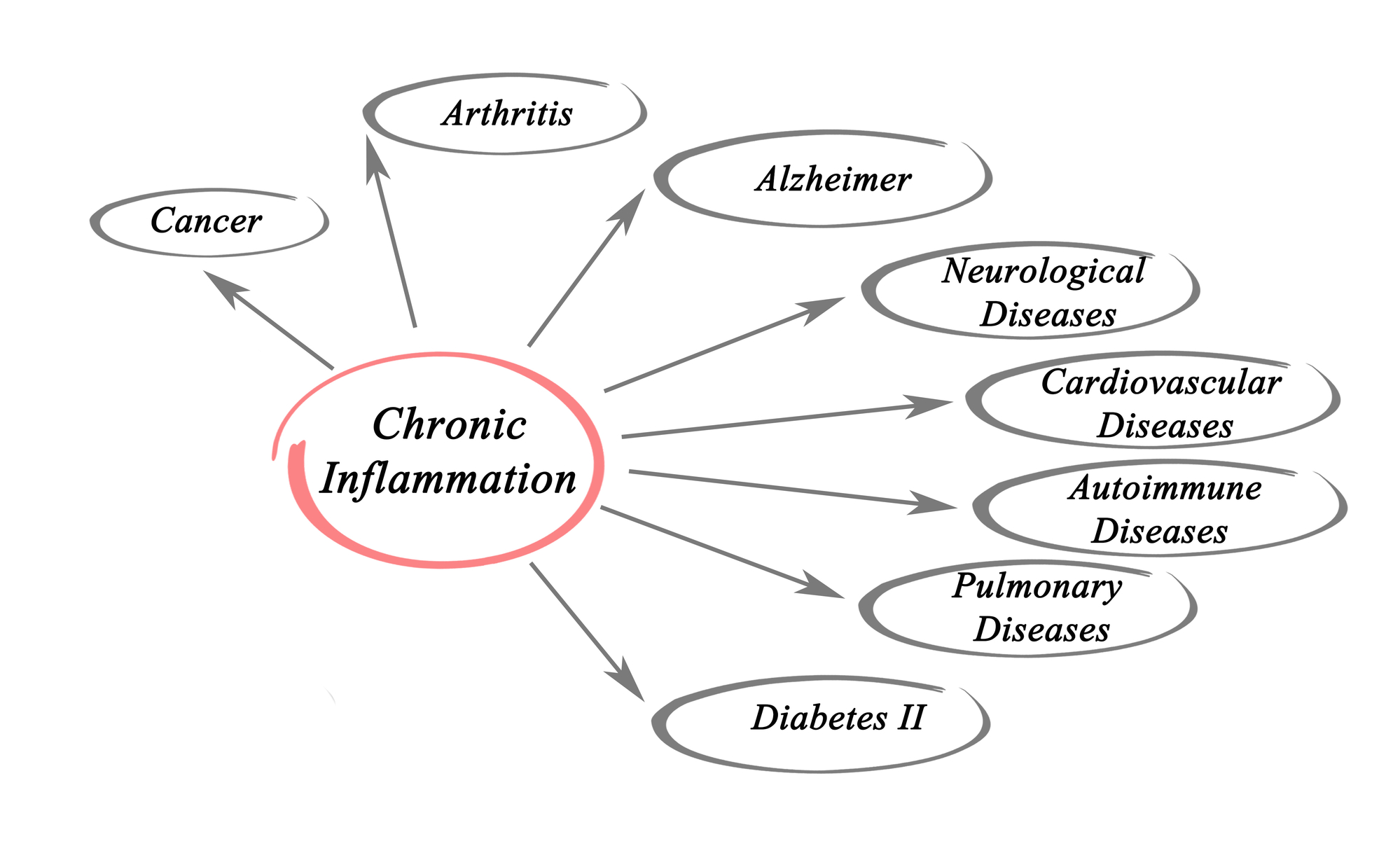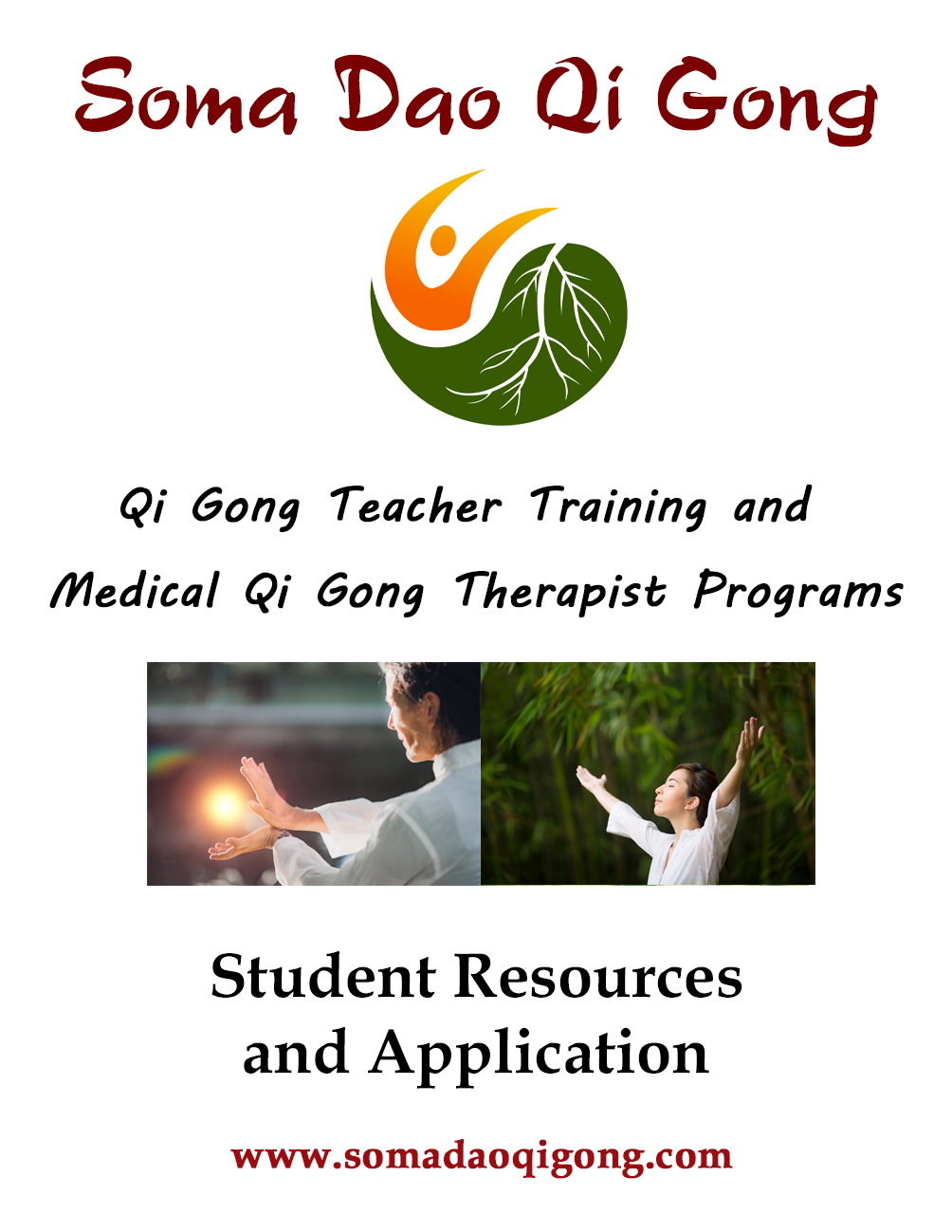Qi Gong Balances Stress Hormones and Lowers Inflammation
We are all aware of the difference between ‘stressing out’ and ‘chilling out.’
Learning Qi Gong (and many other practices) is the gradual process of learning to reconnect to your instinctual body, your emotional body, and your sense of spirit. Each of these ‘bodies’ can get wound up and each needs certain things to unwind.
Each of us gets wound up in stages. Some people clench their jaw first, others feel nausea. Then, maybe it is their shoulders or their lower back – maybe it is a headache.
One of the most potent benefits of a regular Qi Gong practise is a tangible experience of the natural stages of relaxation.
Traditional Qi Gong wisdom suggests finding a balance between just relaxing and building vitality and gradually deconstructing your individual process of getting wound up.
Relaxation is an instinct and a skill.
In the section on Qi Gong and Pain (above), I introduced you to the Relaxation Response. Besides shifting your Central Nervous System form Fight, Flight, Freeze, to Rest, Digest, Repair, the Relaxation Response gradually unwind your individual and instinctual pattern of embodying tension, distress, and trauma.
Once you learn how to stretch, breathe, and move skillfully; Qi Gong takes you into the gradual and somewhat intimate process of feeling into your body, intuition, and soul – and releasing any blocked energy you find. Learning to do this takes time and some self-trust – because it is a skill. I
Relaxation is also a need!
As a clinician, I have observed the health outcomes of people who learned the skill and need for Self-Regulation through the Relaxation Response and the outcomes of people who continued to fight the good fight until they hit bottom.
Modern life is at odds with this instinctual need. We are overstimulated, we have unrealistic and externalized goals, we want the appearance of a good life more than the experience it can offer. Many people feel restless if they have not checked a screen in 45 minutes.
I think the Relaxation Response should be taught in high school.
The Benefits of the Relaxation Response:
- Slowing heart rate
- Lowering blood pressure
- Slowing your breathing rate
- Improving digestion
- Stimulating Parastalsis
- Regulating blood sugar levels
- Reducing and regulating stress hormones
- Increasing blood flow to muscles, organs and extremities
- Reducing muscle tension and chronic pain
- Improving concentration and mood
- Improving sleep quality
- Reducing fatigue
- Diffusing anger and frustration
- Better problem solving
- Reduce Anxiety
- Relieve Depression
- Reduce addictive cravings
Cortisol and Inflammation
From a clinical perspective, shifting your state in this way measurably affects your hormones and neurotransmitters. Your main stress hormone, cortisol, has some powerful and potentially dangerous changes in your immune system. Chronically high cortisol is a factor in most chronic and inflammatory diseases. The opposite is also true. Being able to relax your body in the order you naturally get wound up can reduce your cortisol levels in 20 minutes and lower your blood pressure 10% <?>
Being able to induce the Relaxation Response could save your life!
Your immune system has many strategies and processes that are mediated or driven by different immune cells, antibodies, and autoantibodies. They are often referred to as pathways. For this example, I am going to introduce you to your TH1, TH2, TH3, and TH17 pathways.
The TH1 pathway guides your immune system to go after viruses and bacteria inside your cells. This pathway creates inflammation inside of infected or unrecognizable cells and is mostly associated with organ-specific diseases.
The TH2 pathway guides your immune system after bacteria, toxins and allergens outside of your cells. Increased activity directs your local blood and your lymphatic supply to expand and allow immune cells to move through membranes and artery walls. This is responsible for the histamine (red, itchy and swollen) response associated with an allergic reaction.
If the TH1 pathway becomes dominant your B-Cells (wanted posters and bounty hunters) can be suppressed, which is bad. If the TH2 pathway becomes dominant your B-Cells can be more aggressive, which is also bad. The ideal state is a natural and consistent fluctuation between these directions. (See TH3 below)
If you are in a chronic state of distress because your family is struggling, or you can’t sleep, or you have Fibromyalgia, your body will be running on higher adrenaline and cortisol.
Chronic high cortisol levels suppress the TH1 pathway and aggravate the TH2 pathway. That means the immunity inside of your cells is underactive and your body is likely to have a more aggressive allergic response. Cellular immunity has a massive impact on energy production and epigenetic dysfunction. Overly aggressive immune responses tend to make people more impatient and aggressive.
In Chinese medicine, this could be described as a Xu pattern of your TH1 pathway and a Shi pattern of your TH2 pathway, leading to internal stagnation, heat, dampness, cold, and wind. <?>
People live like this for years. Eventually, they burn out or they find the resources to approach life in a more balanced way.
When people finally stop because they have to, or because they choose to, their immune system can over-correct. If your TH1 – inside your cell’s pathway (police, firetruck, ambulance) – has been sluggish for a few years, it may come back to full strength in a hurry and with a vengeance. This can go very badly if your immune system remembers the last few years like a bad marriage.
A lot of people get flu-like symptoms after a long semester and the final exams. now that they can take a break their TH1 immune cells will get busy and your TH2 cells will begin to downregulate. for most people, after a couple of weeks of lower cortisol, more deep dives into the stages of the relaxation response, the immune system self regulates with the TH3 cellular activity.
Your TH3 pathway is actually called your T-Regulatory Pathway and, as the name suggests, maintains a regulatory function between your TH1 and TH2 pathways. This is always my first concern with my patients. Before any aggressive treatment (Xu or Shi), I recommend focusing on immune modulation.
If your stress keeps your cortisol high, until it crashes – over and over again, like many other people, you are going to experience system and chronic inflammation.
Chronic inflammation is a very expensive process.
Chronic inflammation plays havoc with your immune system, depletes your nutrient stores, feeds off of your hormones and fertility, and even consumes your bone marrow.
Although inflammation often begins as a part of healing a wound or infection, other factors like environmental triggers, latent immune system dysfunction, epigenetic pressure, and Genetic predisposition can activate an Autoimmune response. It is now common knowledge that inflammation is the underlying cause of many chronic illnesses, most chronic pain, and the rate at which you age.
So less inflammation is good for everybody. For the most part 1https://www.ncbi.nlm.nih.gov/pmc/articles/PMC2826100/
Chilling out is a great way to put out the fire.
Regular Qi Gong practice, especially with a focus on inducing the Relaxation Response, is almost guaranteed to release some pain-killing endorphins while releasing those essential TH3 immune regulatory cells.

Other Articles in the Series
Qi Gong Improves and Accelerates Tissue Repair
Qi Gong Improves Posture and Coordination
Meditative Awareness Improves Focus, Memory, and Sleep
Qi Gong Balances Stress Hormones and Reduces Inflammation
Qi Gong Improves Your Metabolism and Mood
Qi Gong Inspires a Creative Mindset
Qi Gong Guides the Release Traumatic Memories

I am interested in learning more about becoming a Qi Gong Teacher and/or a Medical Qi Gong Therapist and would like to receive your MONTHLY newsletter.
YES! Send me a copy of the Student Resource Guide
(We respect your privacy)
Beginning April 8, 2024
Learn the skills, practices, and principles necessary to safely and successfully guide others through several kinds of Qi Gong Classes.